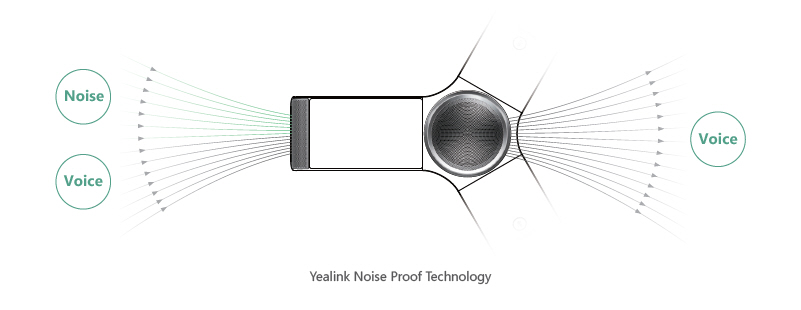Introduction
In the fast-paced world of telecommunications, businesses and individuals alike often find themselves at a crossroads: should they stick with the reliable yet traditional telephone lines or leap into the modern realm of Voice over Internet Protocol (VoIP)? This question is not just about technology; it dives deep into concerns surrounding security, reliability, cost-effectiveness, and overall user experience. The advent of VoIP phone systems has revolutionized communication, offering flexibility and features that traditional lines simply cannot match. However, with innovation comes skepticism—specifically regarding security vulnerabilities that can expose sensitive information.
In this extensive exploration, we will dissect the VoIP security concerns vs reliability of traditional telephone lines, leaving no stone unturned as we analyze both sides of the argument. Buckle up as we navigate through the landscape of telecommunications!
Understanding VoIP Phone Systems
What is VoIP?
Voice over Internet Protocol (VoIP) allows users to make voice calls using a broadband Internet connection instead of a traditional phone line. In simple terms, it turns your voice into digital data that can be transmitted over the internet.
How Does a VoIP Phone System Work?
A VoIP phone system converts your voice into packets of data and sends it through the internet. At its destination, these packets are reassembled into audio signals for the receiver.

Features of VoIP Phone Systems
- Cost Savings: Much lower costs compared to traditional phone services. Flexibility: Easily scalable based on your business needs. Advanced Features: Includes voicemail-to-email, video conferencing, and call forwarding.
Best VoIP Phone Systems on the Market
RingCentral Nextiva 8x8 VonageDiving into Security Concerns with VoIP
The Nature of Cyber Threats in VoIP Systems
VoIP systems can be vulnerable to various cyber threats such as eavesdropping, man-in-the-middle attacks, and denial-of-service attacks.
Eavesdropping Risks with VoIP Phone Systems
When data travels over public networks, it becomes susceptible to interception by malicious actors who may listen in on confidential conversations.
Man-in-the-Middle Attacks Explained
This occurs when an attacker secretly relays and possibly alters communications between two parties who believe they're communicating directly with each other.
Denial-of-Service Attacks and Their Impact on VoIP Services
Denial-of-Service (DoS) attacks aim to make a network resource unavailable by overwhelming it with traffic, significantly disrupting service.
Reliability of Traditional Telephone Lines
Overview of Traditional Telephone Infrastructure
Traditional landlines function using copper wires and circuit-switched networks which have been around for decades.
Strengths of Traditional Telephone Lines
- Consistent Quality: Offers stable connections under various conditions. Less Vulnerable: Less susceptible to hacking compared to internet-based systems.
Limitations in Modern Usage
While reliable, traditional telephone lines lack scalability and advanced features offered by their VoIP counterparts.
Comparing Costs: VoIP vs Traditional Lines
Cost Breakdown for Businesses Using VoIP Phone Systems vs Traditional Lines
| Feature | VoIP Cost Estimate | Traditional Line Cost Estimate | |-----------------------|---------------------------|--------------------------------| | Monthly Fees | $20 per user | $50 per line | | Installation Costs | Minimal | High | | Long-Distance Calls | Usually free | Charged per minute |
Long-Term Financial Benefits of Switching to VoIP
Businesses can save significantly on long-distance calls and maintenance costs associated with physical lines.
User Experience: What Matters Most?
Quality of Service in VoIP vs Traditional Phones
While traditional phones offer reliability, modern advancements in QoS (Quality of Service) for VoIP systems are closing this gap significantly.
Ease of Use: A Comparison Study Between Both Systems
Most users find modern interfaces on VoIP phones intuitive while still maintaining usability compared to older models used for traditional landlines.
Regulatory Aspects Related To Both Technologies
Understanding Regulations Around Telecommunications Security
Regulations like GDPR affect how companies manage and protect customer data across both platforms.
Compliance Obligations for Businesses Using Either System
Both systems must comply with various regulations depending on geographic location and industry standards.
VoIP Security Concerns vs Reliability of Traditional Telephone Lines: A Balanced Viewpoint
When considering "VoIP Security Concerns vs Reliability of Traditional Telephone Lines," one must weigh both sides carefully. While traditional lines offer unparalleled reliability due to their long-standing infrastructure, they fall short in terms of features and cost-effectiveness when pitted against modern VoIP solutions.

However, if security is paramount for your organization—especially if you handle sensitive information—you might lean towards traditional options despite potential higher costs. Conversely, if you prioritize advanced functionalities alongside budget-friendly solutions without sacrificing too much on security measures (like using encryption), then adopting a robust VoIP phone system could be the way forward.
Pragmatic Solutions to Enhance VoIP Security
Integrating robust security measures can mitigate many risks associated with using a VoIP phone system. Here are some essential strategies:

1. Encryption: Utilize end-to-end encryption protocols like TLS/SRTP. 2. Firewalls: Implement firewalls specifically designed for SIP traffic. 3. Regular Updates: Keep your software updated to patch any vulnerabilities. 4. Authentication Mechanisms: Use strong passwords and multi-factor authentication methods. 5. Monitoring Tools: Employ tools that monitor network traffic for unusual https://penzu.com/p/cac2e69ac4b4065c activities. 6. Employee Training Programs: Educate employees about phishing scams targeting VoIP systems.
Frequently Asked Questions (FAQs)
Is a VoIP phone system more secure than traditional phones?- Not necessarily; while traditional phones are less vulnerable to hacking, proper security measures can make a VoIP phone system quite secure too.
- Common vulnerabilities include eavesdropping, DoS attacks, insecure endpoints, etc., but these can often be mitigated through best practices.
- Yes! Most ISPs support standard protocols used by VoIP phone systems, making integration seamless.
- Call quality can vary based on factors such as bandwidth availability; however, advancements have largely improved VoIP call quality over time.
- Always read service agreements carefully; some providers may charge extra fees for specific features or services that appear "free."
- Unlike traditional lines which operate independently from electrical power sources, most VoIPs require backup power solutions like UPS devices during outages.
Conclusion
Choosing between " VoIP Security Concerns vs Reliability of Traditional Telephone Lines" isn't merely an exercise in technology preference; it's a crucial decision that reflects your organizational priorities—from budget constraints to security needs and user experience expectations.
While each option has unique advantages and disadvantages—whether it's advanced features from VoIPs or consistent reliability from traditional lines—the best choice varies from one entity to another based on specific requirements and risk tolerance levels.
The exciting aspect is that communications technology is evolving rapidly! With diligent research coupled with informed decisions tailored specifically toward individual business needs—companies stand poised not just to survive but thrive amidst an ever-changing technological landscape!